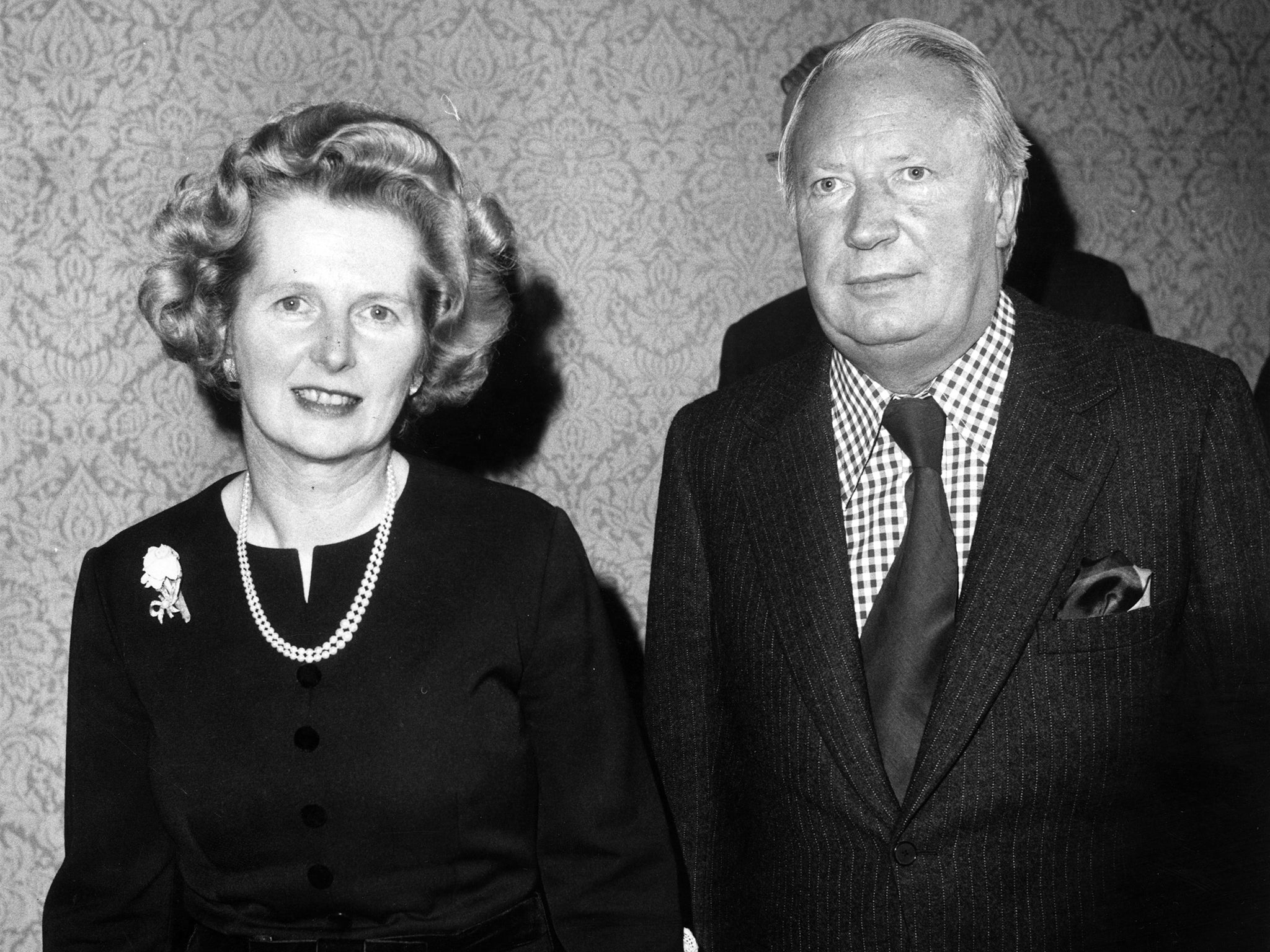They may be difficult for many to hear, but it's right that police findings about Edward Heath are made public
It is manifestly in the interests of those making historic allegations that their claims are not simply dismissed by virtue of a suspect having died. That is especially true in relation to alleged offences that are sexual in nature, where victims frequently feel unable to come forward in the immediate aftermath

Your support helps us to tell the story
From reproductive rights to climate change to Big Tech, The Independent is on the ground when the story is developing. Whether it's investigating the financials of Elon Musk's pro-Trump PAC or producing our latest documentary, 'The A Word', which shines a light on the American women fighting for reproductive rights, we know how important it is to parse out the facts from the messaging.
At such a critical moment in US history, we need reporters on the ground. Your donation allows us to keep sending journalists to speak to both sides of the story.
The Independent is trusted by Americans across the entire political spectrum. And unlike many other quality news outlets, we choose not to lock Americans out of our reporting and analysis with paywalls. We believe quality journalism should be available to everyone, paid for by those who can afford it.
Your support makes all the difference.Friends and family of the late Sir Edward Heath will feel that the report by Wiltshire police into allegations against him of sexual abuse amounts to an unjustified besmirching of his reputation. While officers have been keen to make clear that their conclusions should not be taken to imply guilt on Heath’s part, nor have their findings done anything to remove the cloud of suspicion hanging over him. For those who believe in the former Prime Minister’s innocence, the situation is far from satisfactory.
The police launched their investigation two years ago, at a time when it seemed as if anybody who had a public profile in the 1970s was at risk of being accused of historical sex crimes. Given the amount of speculation that was then being bandied about, it is to the credit of the Wiltshire force that they have taken their time before making public the results of their work.
And while Heath’s supporters will feel the report is unfair, it was incumbent on officers to set out in plain language their findings. Their conclusion that Heath would, in principle, have been interviewed under caution in relation to seven of the 42 allegations against him may be startling but there appears no reason to doubt that Wiltshire police have carried out their enquiries with due rigour.
Indeed, it is clear from the rejection of some of the allegations that officers dispensed properly with cases of mistaken identity and concluded that other claims did not meet the threshold to warrant interview. With Heath not alive to answer questions about the remaining allegations, no more could be done to determine his guilt or innocence.
True, that prevents any real sense of closure. Yet that is always likely in cases where the suspect is deceased and therefore cannot be charged or tried. Nevertheless, it is manifestly in the interests of those making historic allegations that their claims are not simply dismissed by virtue of a suspect having died. That is especially true in relation to alleged offences that are sexual in nature, where victims frequently feel unable to come forward in the immediate aftermath.
Sir Edward’s godson, Lincoln Seligman, made the point that any mass appeal for victims will unearth people who claim to have been wronged – whether they really have or not. That may be true up to a point, but it is a regular feature of police work and it is the task of investigators to examine each claim that is brought before them. Just as Heath’s supporters will feel it is unjust that the allegations cannot be properly tested (in order, they would argue, to be finally dismissed), so those who claim to have been abused will doubtless wish the same (in order, in their version, to gain justice).
In due course, the Independent Inquiry into Child Sex Abuse (IICSA) will consider the police’s findings and determine what more, if anything, can be done to establish if the allegations against Heath have merit. It remains to be seen how far they will be able to delve.
The inquiry itself, set up by the then Home Secretary Theresa May in 2014, remains embroiled in controversy, just as it has been from its very first moments. Its leadership has changed as frequently as a Premier League football club changes its manager, while several groups representing survivors of abuse have pulled out over concerns that the inquiry is not serving the needs of victims. It remains unclear when the inquiry will be ready to report on its findings, including those relating to allegations of abuse by people in positions of power, and of cover-ups by institutions at the heart of British public and political life.
Many who knew Sir Edward Heath have been quick to decry the claims against him. We may never know whether the allegations of abuse in his case have substance. But for far too long vulnerable people in this country, including children, have suffered at the hands of men who used their power both to commit abuse and to ensure that they got away with it. Ultimately, those who make allegations must always be given as full a hearing as possible – even if the people they accuse are no longer in a position to defend themselves.
Join our commenting forum
Join thought-provoking conversations, follow other Independent readers and see their replies
Comments